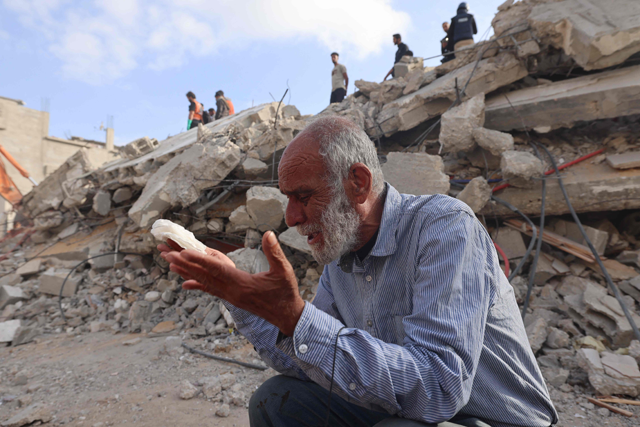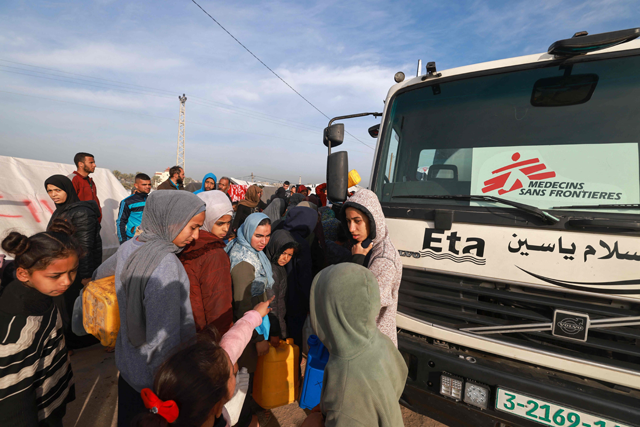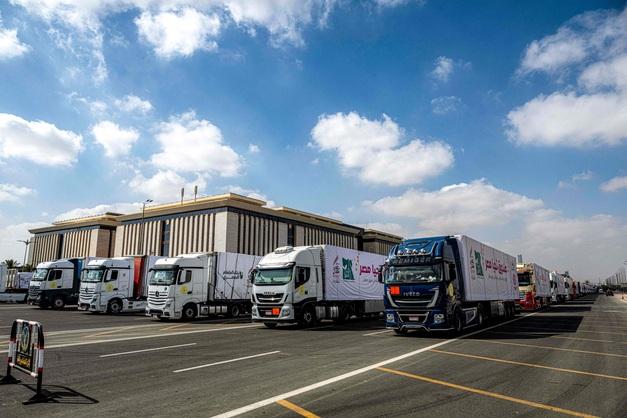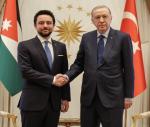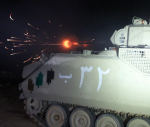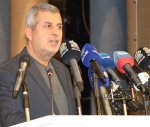You are here
Hamas-Israel war enters 100th day as Netanyahu vows 'no one will stop us'
By AFP - Jan 14,2024 - Last updated at Jan 14,2024
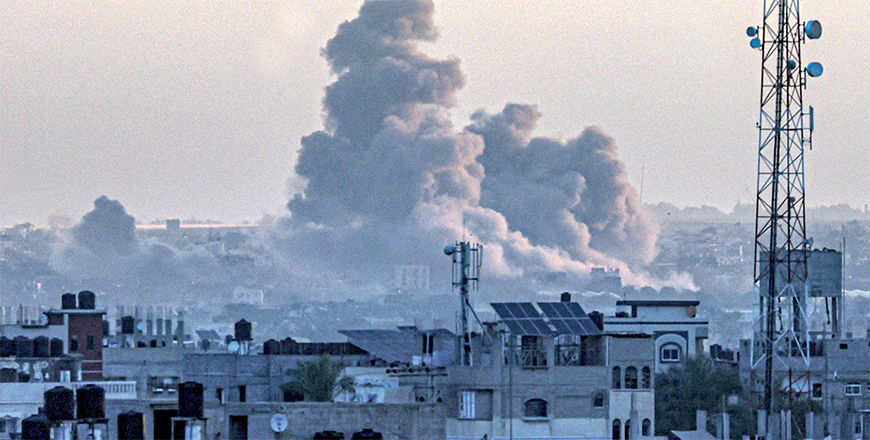
A picture taken from Rafah shows smoke billowing over Khan Yunis in the southern Gaza Strip during Israeli bombardment, as the Israel on the besieged enclave enters its 100th day on January 14, 2024 (AFP photo)
GAZA STRIP, Palestinian Territories — The war between Israel and Hamas entered its 100th day on Sunday after Israeli prime minister Benjamin Netanyahu vowed "no one will stop us" from destroying the resistance group.
The conflict has triggered a humanitarian crisis, with more than 23,000 people reported killed in Gaza and much of the besieged Palestinian territory reduced to rubble, as fears grow that fighting could engulf the wider region.
Fresh strikes hit Iran-backed Houthis in Yemen on Saturday after the rebels warned of more attacks in support of Gaza on what they deem Israeli-linked Red Sea shipping.
The US Central Command said its forces hit a Houthi radar site, a day after the first strikes by US and British forces on rebel sites in Yemen.
Following Hamas resistance group's sudden attack on Israel on October 7, Israel vowed to destroy Gaza's Islamist rulers and launched a relentless bombardment that has killed at least 23,843 people, mostly women and children, according to the latest toll from the territory's health ministry.
After the Hague-based International Court of Justice heard arguments this week that accused Israel of breaching the UN Genocide Convention, Netanyahu insisted no court or military foe could stop Israel from achieving its aim of destroying Hamas.
“No one will stop us, not The Hague, not the Axis of Evil and no one else,” he told a televised news conference on Saturday, referring to the Iran-aligned “axis of resistance” groups in Lebanon, Syria, Iraq and Yemen.
Netanyahu is under growing domestic pressure to bring home hostages who have now been held in Gaza for 100 days, with thousands rallying in Tel Aviv to call for their release.
‘We started to scream’
Health officials in Gaza said on Saturday Israeli strikes killed at least 60 people in the besieged territory.
Nimma Al Akhras, 80, described one of the strikes that destroyed her home.
“We started to scream and I couldn’t move but someone pulled me out and put me on a cart,” she said.
The Israeli forces said it struck dozens of rocket launchers that were “ready to be used” in central Gaza and eliminated four “terrorists” in air strikes on Khan Yunis, Gaza’s main southern city.
It also reported that its engineers had destroyed a Hamas “command centre” in central Gaza.
Mourners gathered at Rafah’s Al Najjar hospital and prayed around the bodies of slain relatives.
One man, Bassem Araf, held up a photo of a child.
“She died hungry with bread in her hand. We tried to remove the bread from her hand but it was held tight,” Araf said.
“This is the resistance they are targeting in Gaza, just children.”
‘Devastating repercussions’
An Israeli siege has sparked acute shortages of food, water, medicine and fuel in Gaza, where the health system is collapsing.
The head of the UN agency for Palestinian refugees, Philippe Lazzarini, said during a visit to the Gaza Strip on Saturday “the massive death, destruction, displacement, hunger, loss and grief of the last 100 days are staining our shared humanity”.
He warned an entire generation of children in Gaza were being “traumatised”, diseases were spreading and the clock was “ticking fast towards famine”.
Winter rains have exacerbated the dire humanitarian situation in Gaza, where the UN estimates 1.9 million, nearly 85 per cent of the population, have been displaced.
Many have sought shelter in Rafah and other southern areas where the health ministry says there isn’t the infrastructure to support them.
Gaza’s health ministry spokesman accused Israel of “deliberately targeting hospitals... to put them out of service”, warning of “devastating repercussions”.
Hospitals, protected under international humanitarian law, have been hit repeatedly by Israeli strikes in Gaza since the war began.
Fewer than half of Gaza’s hospitals are functioning and those only partly, the World Health Organisation says.
An AFP reporter in Rafah said telecommunications had been partially restored, a day after Gaza’s main operator Paltel reported the latest outage.
Paltel did not immediately confirm the service restoration but said an Israeli strike killed two of its employees in Khan Yunis while they were repairing the network.
Related Articles
GAZA STRIP, Palestinian Territories — Israel carried out deadly strikes in Gaza, first responders in the war-battered Palestinian
GAZA STRIP, Palestinian Territories — Fighting raged across Gaza and Israeli units raided the West Bank on Sunday after embat
OCCUPIED JERUSALEM — US Secretary of State Marco Rubio met with Israel's prime minister in Jerusalem on Sunday for talks on the Gaza&nb


